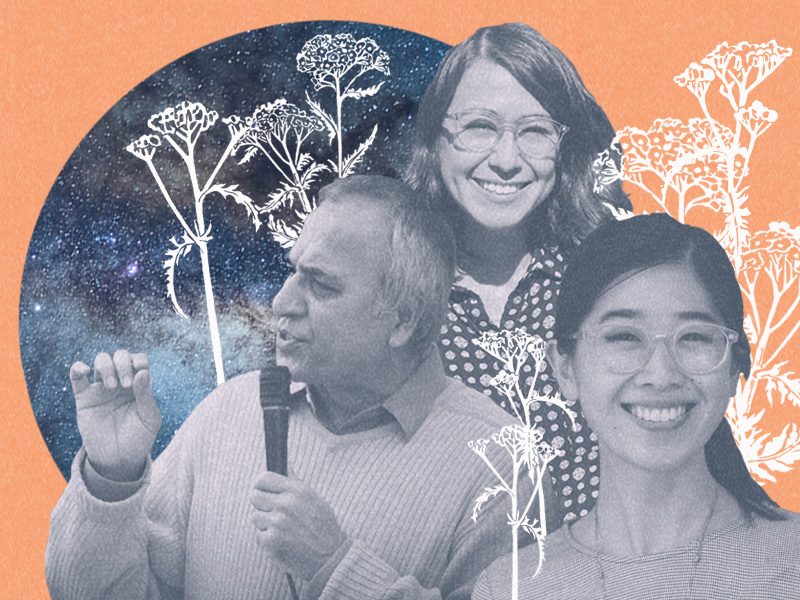During the Allied Media Conference, the Abolish Carceral Tech track is filled with hands-on workshops, meet-ups for community-building, and epic sessions of strategising and dreaming. In this series, Justice, Equity, and Technology Table member Safia Oulmane speaks with session organisers about their work. Alexis Takahashi shares more about the session Algorithmic Ecologies: Abolitionist Tools For Community Resistance.

The Session
In our increasingly policed and surveilled world, algorithms have become critical sites of power, struggle, and resistance. Algorithmic ecology is an abolitionist framework and relational model that illustrates the hidden ideologies and impacts of algorithms. It also serves as a visual storytelling tool and a landscape analysis.Using a case study of the predictive policing technology PredPol, Free Radicals will introduce participants to “Algorithmic Ecologies”. In this hands-on session, participants will learn about the racial history of surveillance, hear stories of community resistance, and construct their own Algorithmic Ecologies. Past collaborators have used the Algorithmic Ecology framework to map out their fights against Palantir, bail reform, gang databases, and FOSTA-SESTA. Through this session, participants will leave with a deeper understanding of the relationship between abolition and state technologies as well as organising tools to bring back to their campaigns and communities.
During the conversation, organisers stressed the need to go beyond asking how policing and carceral technology can be changed, but to ask why that technology exists in the first place. In their organising work, they wondered how, as activists, they can demystify public discourse around algorithms, for which there is a deliberate fog, created to keep people busy and confused. The purpose of the algorithmic ecology created by the Stop LAPD Spying Coalition in collaboration with Free Radicals is to dispel that fog and to demystify algorithms so people can take it back in their daily lives.
Time and again, organisers emphasised the importance of daily life. Abolition is not limited to one campaign or struggle. It's our day to day existence because algorithms rearrange our relationship to power in very insidious ways; they rearrange how we think about ourselves in relation to power. Today, the word “algorithm” is used in the context of technology, but if we were to draw into the analog world, we can see that algorithms have always been there via the written word, from policy development to structures of enforcement. These are algorithms which rearrange our relationships to power with the goal of social control and submission. As a tool for abolitionists, algorithmic ecology breaks the chain of submission.
Alexis Takahashi, co-presenter of this year’s AMC “Exposing Algorithmic Ecologies” session explains more about his work. Alexis is a Coordinator for the Transformative Initiative at Brownsville Community Justice Center in Brooklyn. Alexis is also a youth educator and restorative justice practitioner.
What got you involved with this work?
"I first got involved in organising through my high school’s Asian-American activist community. I grew up in a predominantly White suburb and I faced a lot of racialized harassment growing up. It was important just having a community space where you can have a sense of innocence and empowerment. It’s not just a space where people share their experiences, it’s also a space where they learn about the history of Asian American organising and the fight for civil rights, reparations, ethnic studies, and the impact that one can have in racial justice more broadly.
We started Free Radicals right out of school as a group of disillusioned science students interested in how to connect our experiences in social justice activism with our identity as scientists. We started studying deeply about how science and technology are very political and eventually we wanted to start sharing what we were learning. Through that work, we connected with the coalition and started this amazing partnership. We take political analysis and partner with community groups to figure out how to apply it to solutions for the challenges people are going through.Currently, I work as a Coordinator in the Transformative Initiative at Brownsville Community Justice Center. I work with youth of colour in Brownsville about how to address the real causes of gun violence and I train them in restorative justice practice. So, I take abolition not just from the lens of dismantling harmful systems, but also from the lens of how we increase people’s capacity to build alternatives."
What struggles have you encountered along the way and/or expect to encounter in the future?
"Even when we look at the algorithms, when we collage it and map it out, we see actors present that are very well coordinated and very well resourced. You can see this even in the campaign we did with PredPol and the Los Angeles Police Department (LAPD) where they invented some complicated names so that we couldn’t have a catchy tagline. They are constantly co-opting their own language or trying to reinvent themselves. They evolve with us. So there’s always that tension of having to constantly evolve as the opposition evolves as well."
What does “Abolish carceral tech” mean to you?
"As long as policing exists, that technology can be used in carceral ways. So, abolishing carceral tech means abolishing policing, prisons, and carceral systems in general."
Algorithmic Ecologies: Abolitionist Tools For Community Resistance is scheduled Friday 1 June, at 05:00 PM CEST
Registere here for the Allied Media Conference to join!